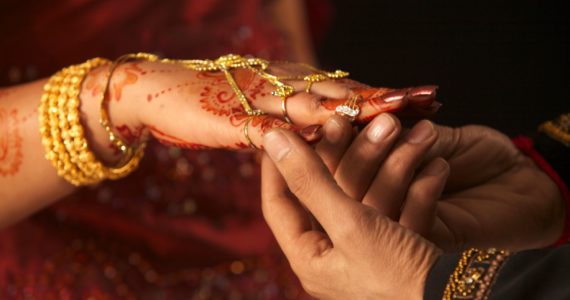Source: http://www.soundvision.com/article/a-short-wedding-checklist
The aim of this is to make sure that you’ve got at least the very basics of planning a wedding covered before you take the leap to marriage. You can always look at the Long Wedding Checklist to select from as well:
1. Have the bride and groom agreed to….
There are a number of issues that the bride, the groom and their families need to have discussed and agreed to beforehand to ensure that things can move forward before any formal preparations begin. They are:
– the date and time: day and month are important, but time is also very important. It can affect menu – will you serve guests a post-breakfast brunch, lunch or dinner? When discussing the time of the event, figure out which prayers will occur during the ceremony and how they will be accommodated at the hall
– the location: which city and country should the ceremony be held in? Which hall?
– the Imam who will officiate the marriage
– the Mahr: this can be one of the most contentious issues. Engagements have been broken over this issue that’s why it’s important to discuss it first thing in a clear and respectful way
– the conditions of the marriage contract: this is another issue which can spell disaster if the couple has not discussed it beforehand
– who the wedding coordinator is (this is the person who is the overall in charge of the wedding and should ideally be a parent who is older, Islamically grounded, wiser and experienced in planning weddings)
– the marriage groundrules: will you have a formal or informal wedding? How will you ensure men and women have their own spaces at the hall? How will you ensure only Halal entertainment is provided for guests?
– a preliminary guest list
2. Shariah, legal, and immigration requirements
This should be one of the first things taken care of. Some important items are:
– if the couple is going to have a prenuptial agreement, all of the details of this, as well as getting it written up and notarized must be done as soon as possible
– if the couple are living in two different countries, all immigration issues must be inquired about and the process must begin immediately. In some cases marriage suffers because of absence of information regarding immigration laws
– find out what state requirements are for married couples. For instance, how soon in advance do they have to get a marriage license before the wedding and do they need a blood test before the marriage?
3. Budget
Establishing the budget will provide a general framework for planning the other aspects of the wedding. Some things to consider:
– remember that Islamically, the best wedding is a simple one
– money should be geared towards the basics: food, hall, the bride and groom’s clothing and accessory needs and the program. Other things are usually just extras
– you can be flexible even in what’s necessary. You don’t need to buy or rent what’s in style or the fanciest or do whatever your friends are doing
4. The hall
– it should be able to fit all expected guests
– it should be available at the right date and time
– it should be in a location convenient for all guests
– it should be near reasonably priced motels and hotels for the ease of guests coming from out of town
– it should either offer appropriate catering or be willing to work in cooperation with the caterers
5. Food
Here’s what you should look out for:
– if you are going for a catered affair, make sure the caterer can prepare Halal food (i.e. can you provide the meat?)
– find out if the caterers are also providing you with plates and utensils
– make sure to sign a written contract stipulating the exact costs, for exactly which items and any other conditions and specifications you want
– food will be served or it will be a buffet
– make sure the caterers or those who are making the food (if you’re not catering) will be able to keep the food warm
6. Program
Take this into consideration when planning your wedding program:
– get one person to be in charge of the program.
– plan properly how you wil ensure everything happens on time
– the program should incorporate the Imam’s role in officiating the marriage
7. Ummah considerations
– invite Muslim from other ethnic groups
– invite non Muslim neighbors and collegues
– spice and oil levels in food should be acceptable to all
– make extra efforts to invite and host poor people
– if part of ceremonies are cultural, then explain to guests who may think these are Islamic
– use a language in the program which all understand. If a bit or two are in another language, please translate
– this event could be dawa event








